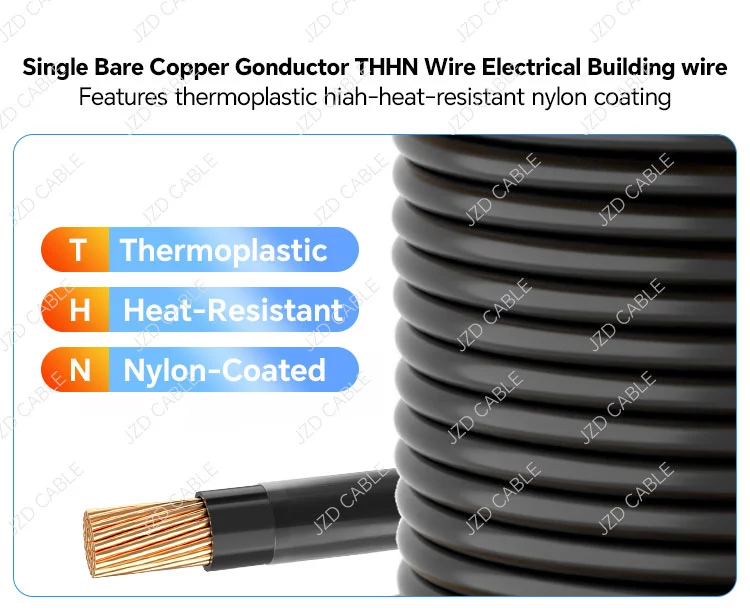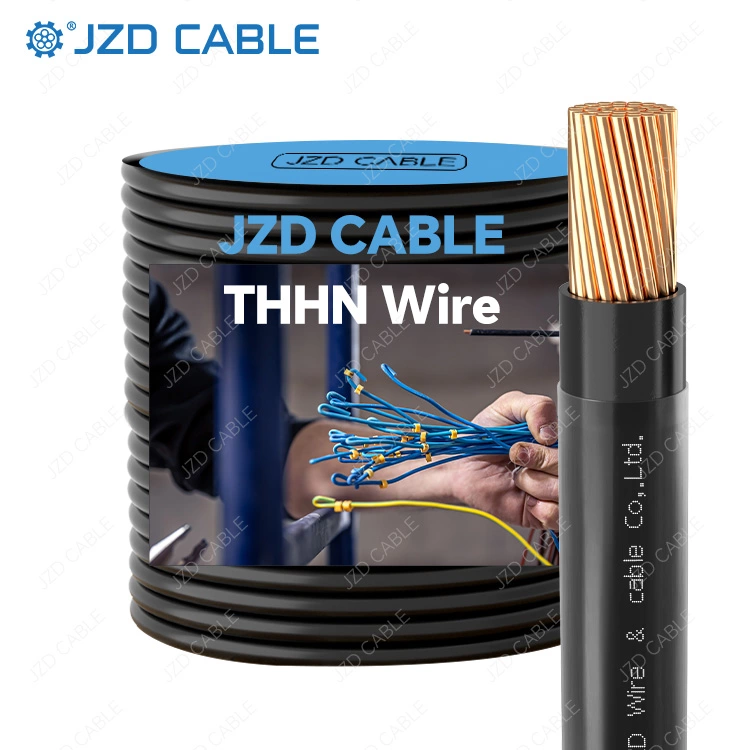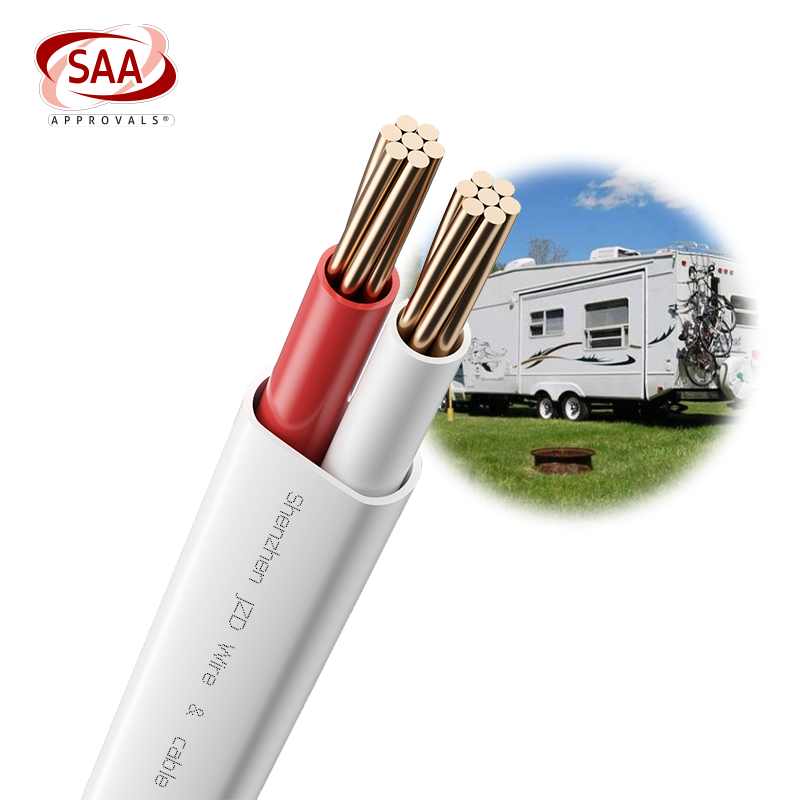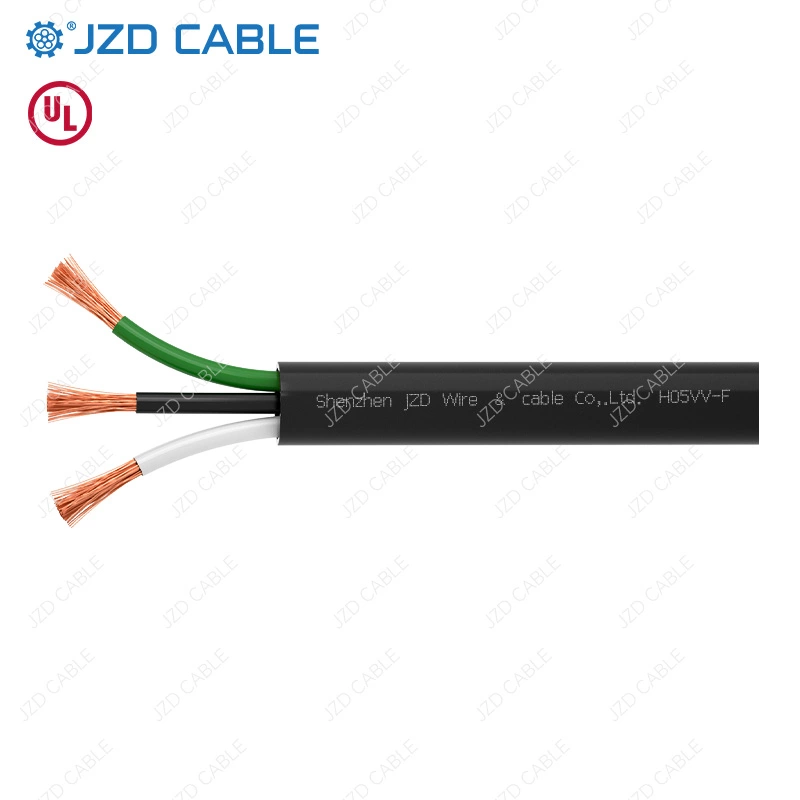When it comes to electrical wiring projects in the Philippines, compliance and performance are non-negotiable. THHN wire with a durable nylon sheath stands as a industry staple, but selecting a product that carries official Philippine certifications is crucial for safety, legality, and long-term reliability. This blog dives deep into what makes THHN Nylon wire an exceptional choice and why JZD Cable’s certified solutions provide the trusted foundation your projects demand. Ensure your builds are not only powerful but fully compliant.
What is THHN Nylon Wire?

Characteristics and Applications of Nylon Wire:
- Abrasion Resistance: High surface hardness and low friction coefficient resist wear during installation, dragging, and laying, extending service life.
- Impact Toughness: Withstands mechanical stress like crushing and impact, protecting internal conductors and insulation.
- High Strength & Flexibility: High tensile and tear strength, with certain grades (e.g., PA12) offering flexibility suitable for bending applications.
2.Good Chemical Resistance:
- Strong resistance to oils, fuels, solvents, cleaners, etc., making it suitable for chemical plants, engineering machinery, and other environments with corrosive substances.
3.Excellent Heat Resistance:
- Wide operating temperature range: -40°C to +90°C, meeting high-temperature environment demands.
- Halogen-Free: No halogens added during production, resulting in low smoke and toxicity when burned, compliant with RoHS standards.
- Flame Retardancy: Excellent self-extinguishing properties; can achieve standards like UL VW-1 and IEC 60332 with flame retardant additives, suitable for construction, rail transit, etc.
5.Physical Properties & Processing Advantages:
- Lightweight: Small outer diameter, light weight, and low static friction coefficient facilitate easier installation.
- Processability: Suitable for thin-wall extrusion, achieving uniform sheath layers with high cost-effectiveness.
Typical Applications:
- Automotive Wiring Harnesses & Components: Nylon-sheathed cables resist oil and high temperatures (short-term up to 150°C), suitable for engine compartment wiring, brake systems. Lightweight nature also helps reduce vehicle weight.
- Aerospace Systems: Used in aircraft low-voltage lines, where chemical corrosion resistance and cold resistance (-40°C) meet stringent requirements.
4.Electronic & Electrical Equipment:
- Insulation & Connection Components: Nylon’s insulation and heat resistance make it suitable for electronic connectors, switches, sockets, especially where flame retardancy (e.g., UL-certified THHN cable) or anti-static properties are needed.
- Sensors & Thin Insulation: Materials like PA12, known for flexibility and hydrolysis resistance, can be used for insulation in automotive sensor cables or medical device cables.
- Rodent/Chemical Resistance: The nylon sheath strongly resists rodents and chemical media (oils, acids, alkalis), suitable for petrochemical plants, underground installation, and other high-risk environments.
- High-Temperature & Flame Retardancy Needs: Modified versions can meet flame retardancy standards like UL VW-1, suitable for data centers, rail transit, and other scenarios with high fire safety requirements.

Common Mistakes in Selecting Nylon Cable often lead to project setbacks. These include:
- Incorrect Conductor Size or Voltage Rating: The cable size must adequately handle the load. An undersized cable can overheat, causing voltage drop, exceeding specifications, or unnecessarily increasing costs.
- Improper Installation Methods: Cables must be installed according to environmental conditions and following installation codes. Excessive bending or compression can damage insulation, leading to cable failure or short circuits.
- Ignoring Environmental Conditions: Cables should be selected based on the operating environment. Overlooking factors like temperature, chemical exposure, and mechanical stress can lead to rapid aging or safety hazards.
- Using Low-Quality Cable: Choosing poor-quality cables might save costs short-term but can lead to more issues like poor abrasion resistance, easy damage, short circuits, or operational failure.
- Neglecting Certifications: Overlooking certifications like UL, CE, or TUV may result in non-compliance or safety risks.
To avoid these pitfalls, consider:
-
Assessing environmental conditions, mechanical demands, and electrical requirements. -
Verifying certification compliance and ensuring the cable meets project-specific parameters.
Why Choose JZD Cable?
- Premium Quality: Guaranteed performance and longevity.
- Expert Support: Technical assistance to help you select the right product.
- Certified Compliance: Products you can trust for safety and regulatory adherence.






